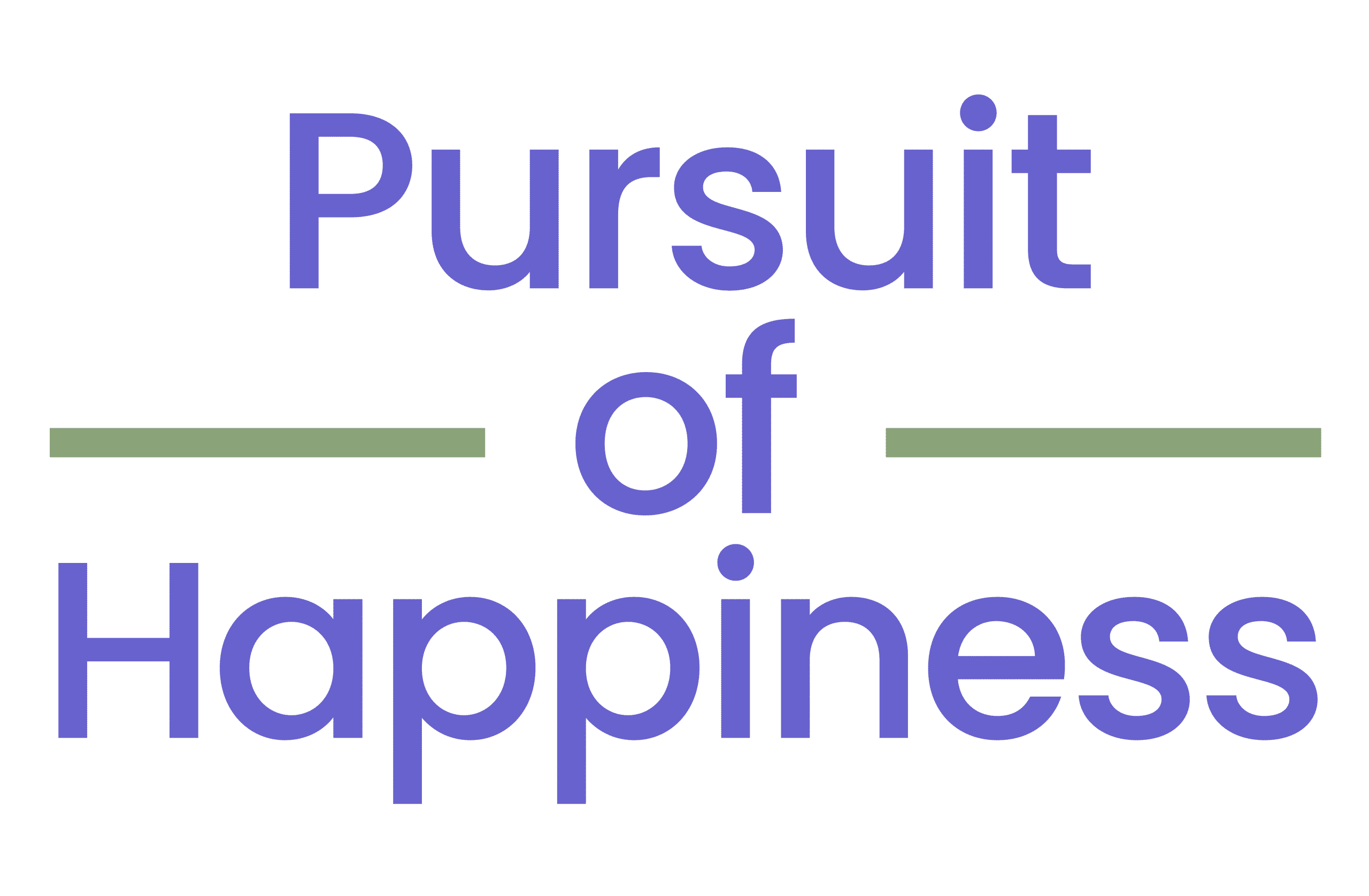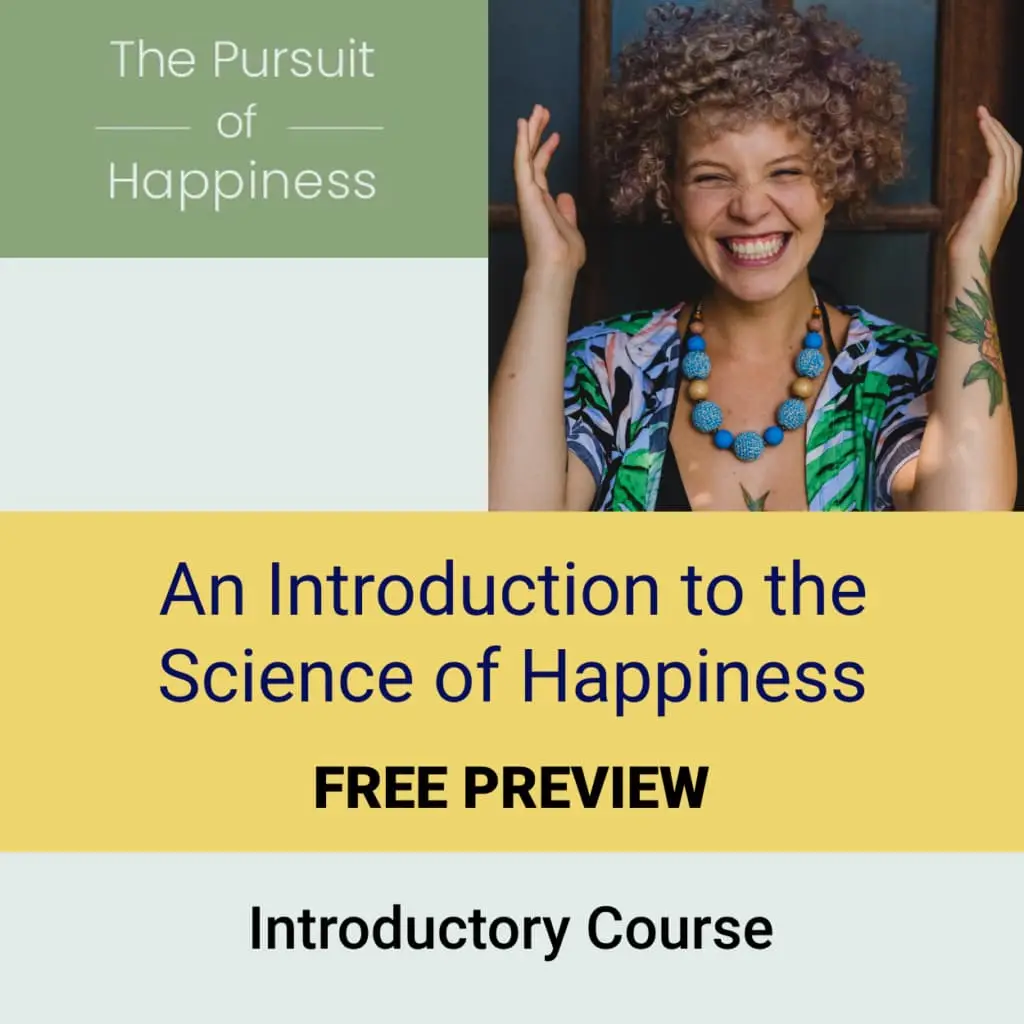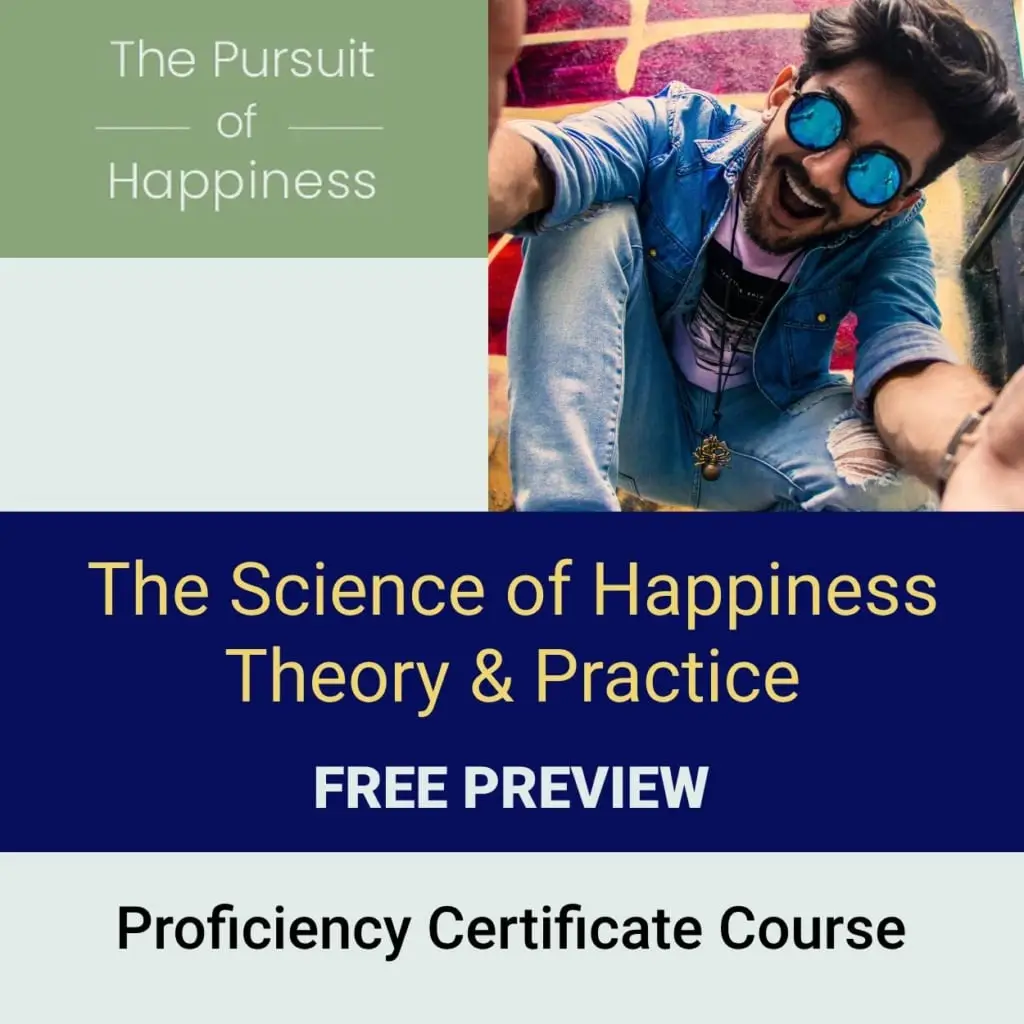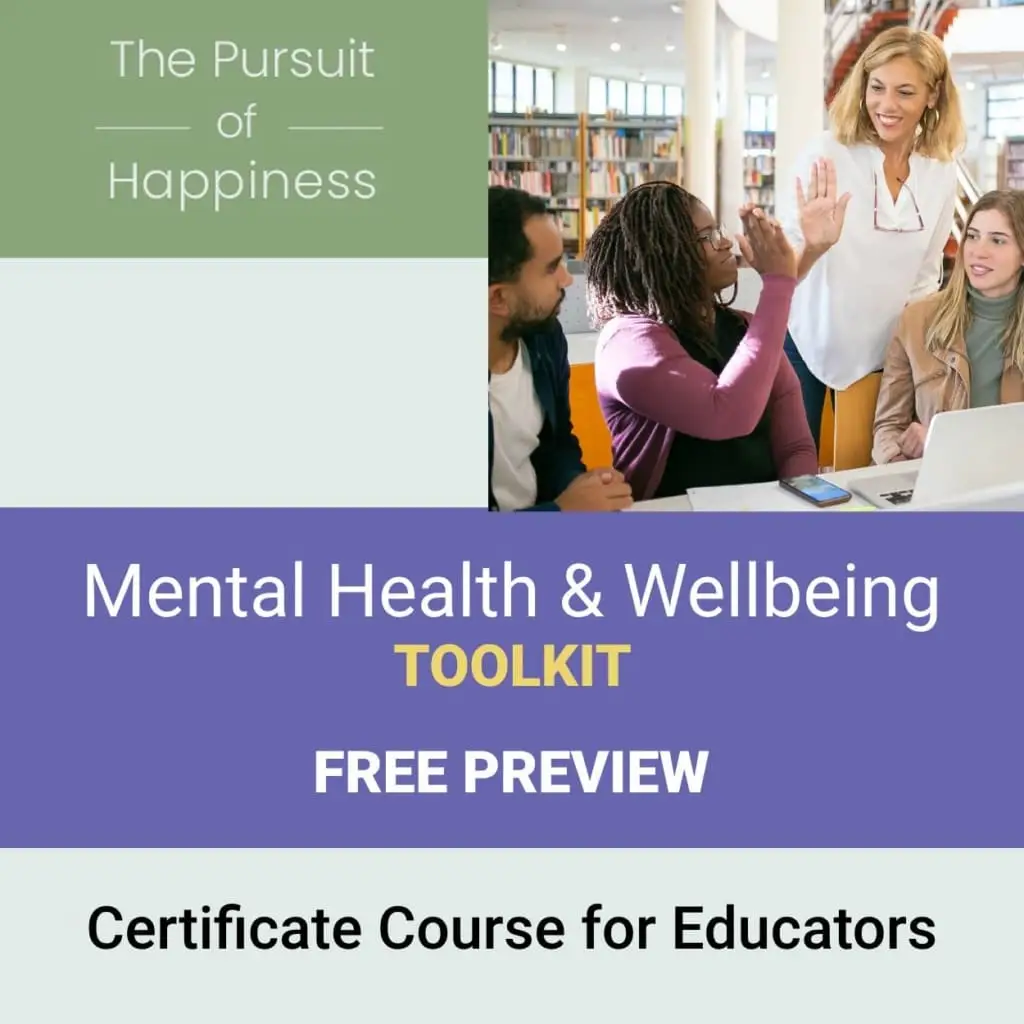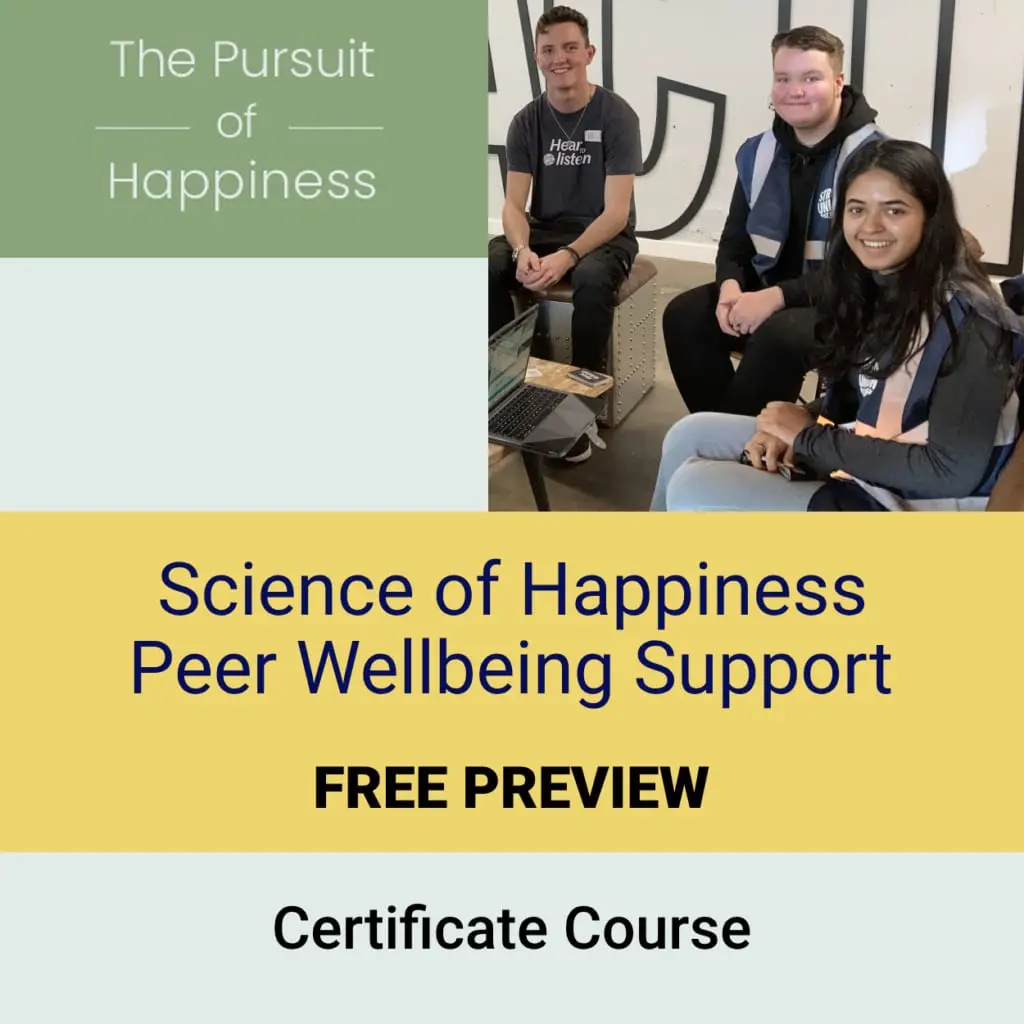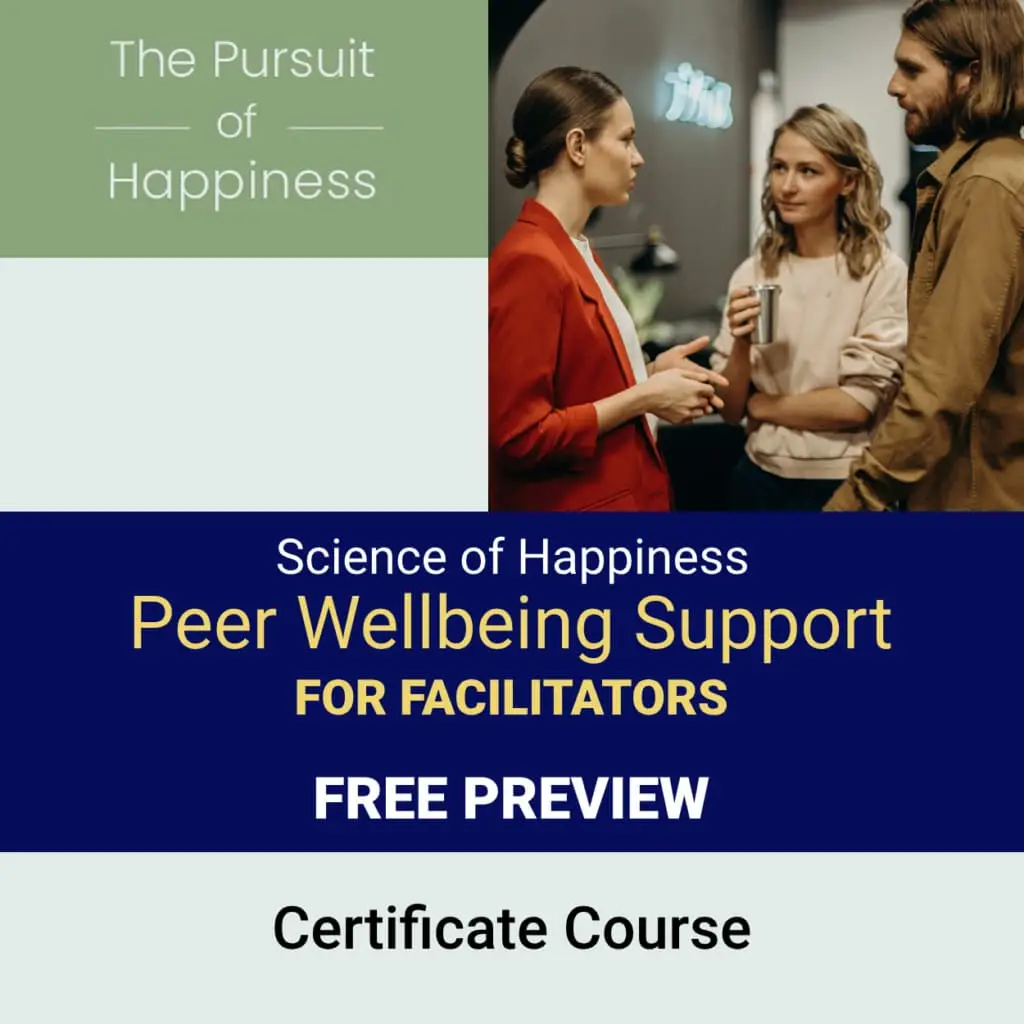Excellent introduction - interesting, clear, motivating!

I was drawn in by the simplicity and logic of the course, which provided me with a clear, big picture of happiness. I can strive toward it in the right direction. That’s what sets the course apart from the others.

Wonderful food for thought, and a great jumping off point for personal growth.

Very informative and educational. This should be a channel on public tv!

This is brilliant.
Life is not complete without happiness!

Frequently Asked Questions
How long does the intro course take to complete?
As long as you like. Each of the three videos lasts about 10 minutes. The Introductory and Certificate Training Courses are completely self-paced.
Why should I take a course on the Science of Happiness? Can science really show us how we can become happier?
Thanks to a flood of recent scientific research, we are now discovering new secrets about human happiness. Did you know that “active listening” can do wonders for your relationships and your happiness? Did you know that a fifteen minute stroll through the park can lower your blood pressure as well as boost your mood? If not, you will love this course!
How can I benefit from this course?
- 76% of students who practice only one of the “habits of happy people” described in the Science of Happiness course, report feeling happier.
- About 25% of our students are mental health professionals, including counselors, psychologists, nurses, and life coaches, seeking online training courses, including peer support training, on wellbeing and depression prevention.
Questions? Call 1 (631) 762-4506
Introductory Course Curriculum
Introduction to the Science of Happiness and Positive Psychology
- What Happened to Happiness?
- Birth of a New Science
- Habits of Happy People
- Introduction Quiz
Next Step: Proficiency Certificate Course
NOTE: This is the regular price. It enables us to provide free access to students.
